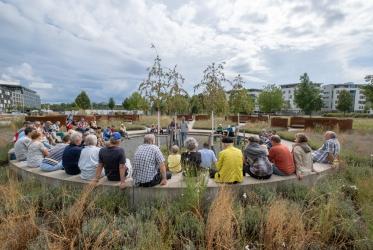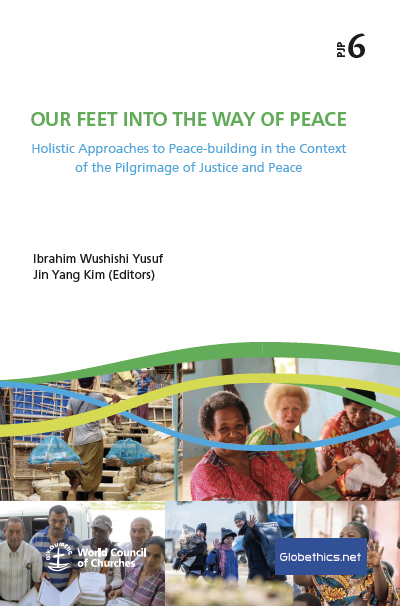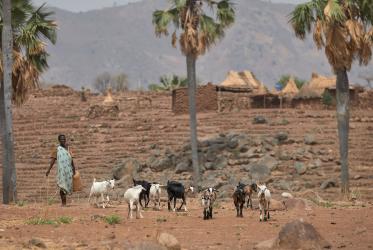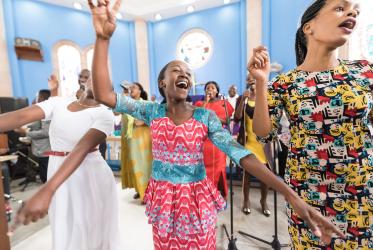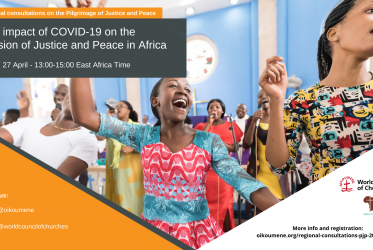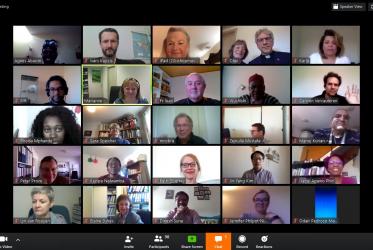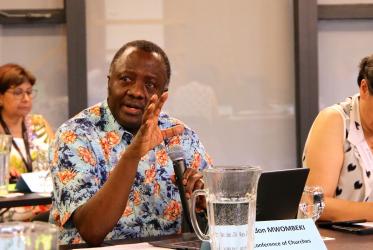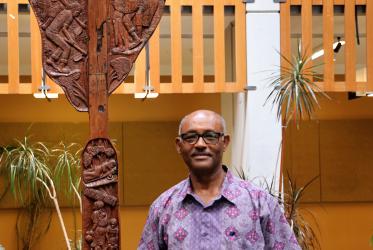Displaying 1 - 20 of 75
Workshop explores how interreligious dialogue brings trust and respect
15 September 2022
Our Feet into the Way of Peace: PJP Series 6
Holistic Approaches to Peace-building in the Context of the Pilgrimage of Justice and Peace
19 August 2022
South Sudan Church leaders welcome new cabinet
15 March 2020
South Sudan Council of Churches: peace “is a question of the heart”
11 November 2019
African religious leaders express new concerns over South Sudan peace
19 September 2019
Dr Saïd Ailabouni: God is on the side of rejected, oppressed, occupied
12 September 2019
Former WCC executive finds joy working for peace in Ethiopia
06 August 2019
WCC expresses concern, solidarity with people of Sudan
12 April 2019

